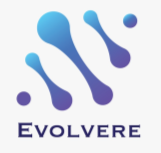The profound impact of the emergence of Artificial Intelligence (AI) has tremendously affected how companies and sectors operate today. For instance, the supply chain function holds a new standard of reshaped placements and robotized warehouses in every industry. Similarly, others have caught this technological wave to benefit by copying and incorporating the same speed and pace. Today, human resources are the perfect illustration of the shift towards Digital HR, but most companies still state this feature. While it is an overwhelming feeling while considering the immensity of ‘the possible’, the HR industry, on the other hand, is currently facing questions that are in dire need of meeting the rising expectations from an evolving workforce.
AI is clearly a critically acknowledged component of the future HR service delivery model. The incorporation is already visible in chatbots, robots or other cognitive solutions within the HR departments. Similarly, with a new norm of Robotic process automation (RPA), optimization exercises like compensation, payroll, and performance are now significantly shifting away from manual inputting.
Although the businesses do not seem to back out any time soon from utilizing these accurate and practical tools, there are some concerns regarding the limitations that AI poses in communicating important variables like company culture. Seemingly, there are several benefits and disadvantages of applying these tools in Human Resource Management, and the differences in opinion have further generated debate.
Many believe that Artificial Intelligence helps in ruling out biases during employee hiring. However, promised to screen delegated candidates according to appropriate roles, the system is not diagnosed to weigh and employ important variables that correspond with the company values. The AI is yet to learn and “unlearn” biases in various other situations too.
With communication as the vital aspect of employee- engagement, the need for human interaction and the challenges faced by every individual may not be entirely exhausted by the AI
system. On the flip side, it fully serves the functions that man companies miss out on. These include intelligent surveys and real-time feedback gathering. Moreover, this Intelligence can provide a platform for the management to provide an all-in-one picture of the various challenges faced by each employee at work.
Talking of staff development and learning, one of the significant responsibilities of the Human Resource Management department is to educate the employees with new programs, new
procedures, tools, and other pieces of training associated with their role in the organization. The AI can help the department monitor and evaluate every performance and help every employee stay out o the purview of declining competency, further keeping the team together.
Artificial Intelligence could never replace human capital, but it can undoubtedly assist us with practical applications and enhance the human resource management department’s lifecycle. The downsides can prove fatal for the organization; hence, in-person management should always accompany a profitable business decision. One can say that introducing AI to the company is a vital risk that must be taken with adequate consideration.
